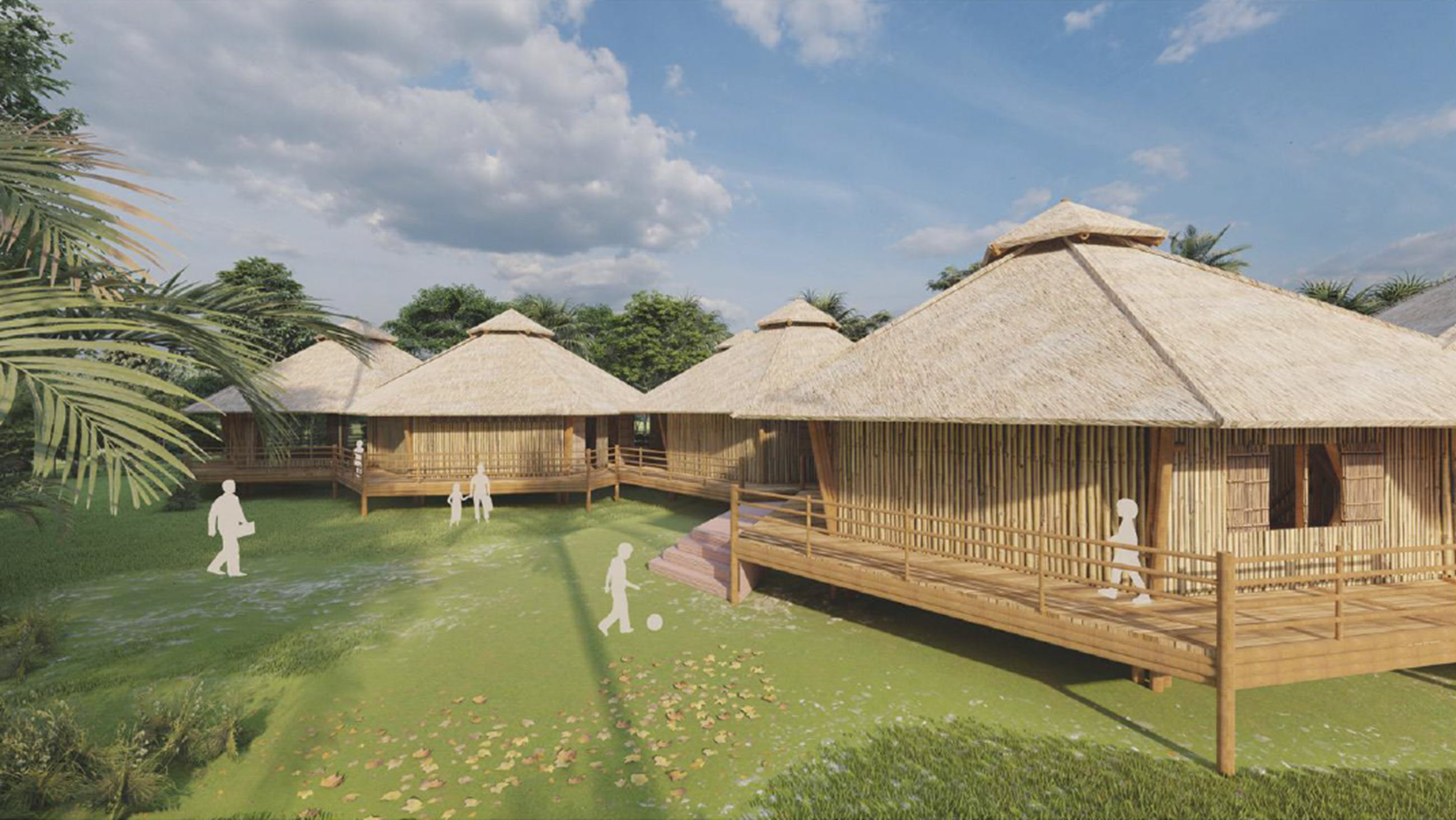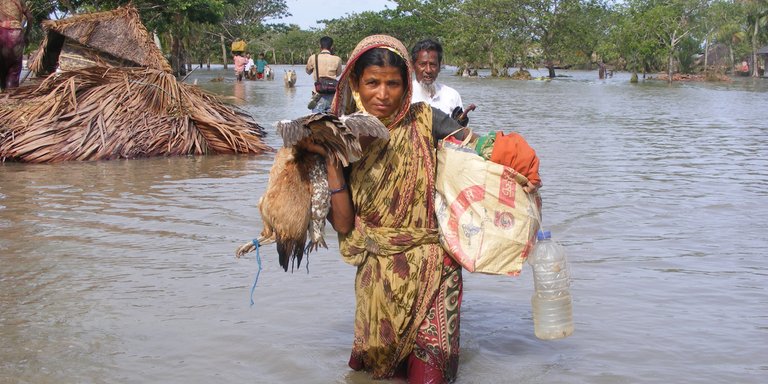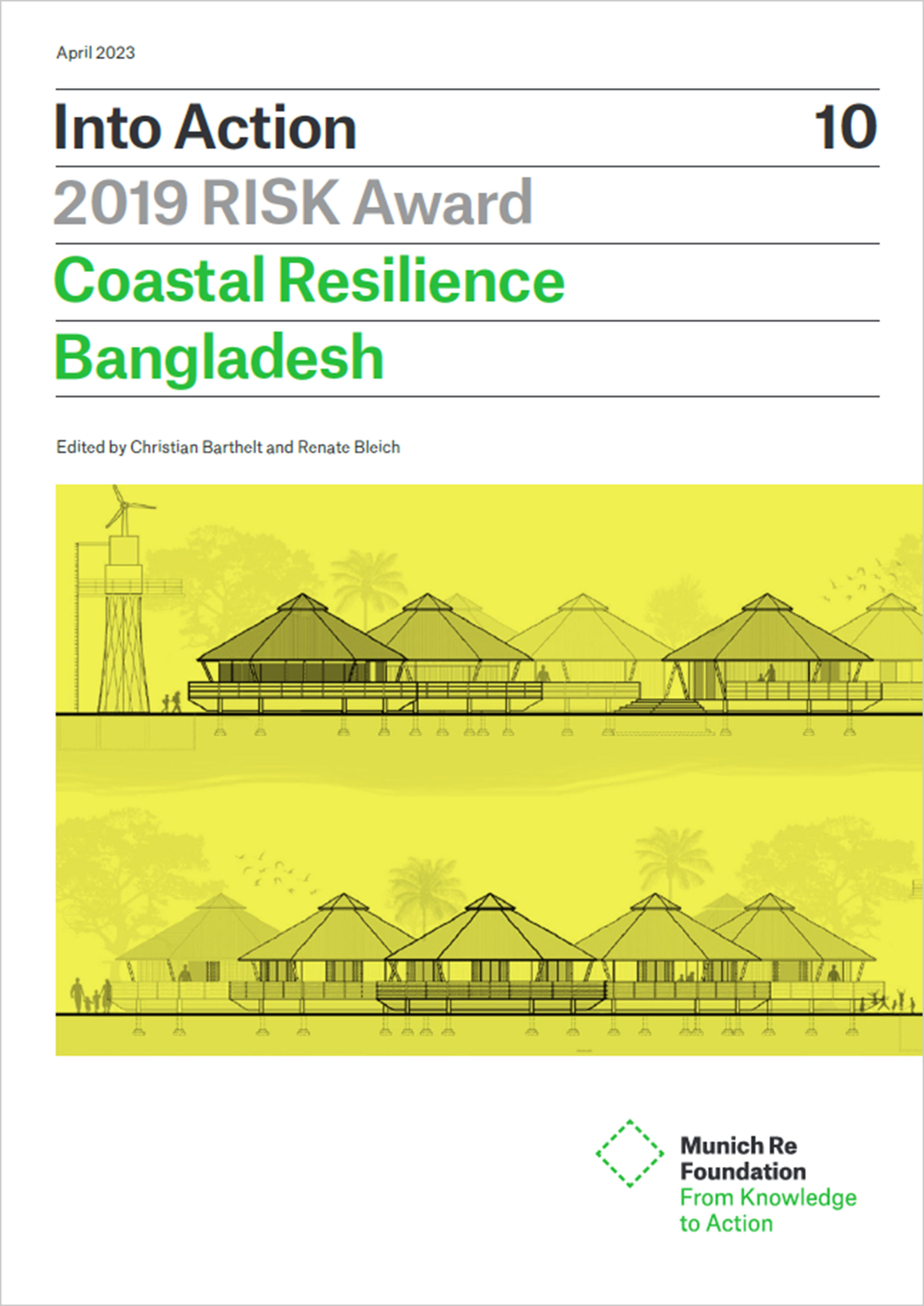
RISK Award 2019 - University of Dundee and Resilience Solution
"Upscaling the concept of floating homes in Bangladesh"
properties.trackTitle
properties.trackSubtitle
News from the project
About the project

These homes are not regular house boats. They are complex constructions that can float on inundated areas and are resilient to floods, storms, earthquakes and river bank erosion. Furthermore, they also tackle root causes of vulnerability by giving families the opportunity to address multiple interconnected challenges at once. They improve livelihood standards as they include permaculture based food production systems with chicken and fish on verandas as well as vertical garden systems attached to walls. Drinking water supplies are secured through big tanks harvesting rain water. Renewable energy systems allow families to continue conducting the most basic activities that require electricity in times of disasters and a sanitation system secures hygiene standards. Hence, this innovative concept helps families to live through inundation periods without losing the means to satisfy the most pressing needs. The houses help to adapt to climate and environmental changes and they provide their part to mitigation of climate change via renewable energy production. They even provide opportunities to create further income through selling e.g. home-grown plants, eggs and more.
In a pilot phase three homes were built in Bangladesh in Dularchar at River Ganges south of Dhaka. The homes enjoy a lot of attention – both domestically and internationally. Most importantly, they were co-designed by locals in a participatory process and aim to empower disadvantaged families. The process did not only improve the structural designs, but also transferred ownership during the construction phase. This is of high importance for sustainable success because investments and funding will otherwise significantly loose value. Unfortunately, local ownership reduced over time due to political constraints and social issues between families in Dularchar. Creating an enabling political and social environment thus still poses a challenge, but the project-upscaling aims to tackle these issues. Specifically, during the RISK Award project implementation the following steps will be taken:
- Enhancing the structural designs of the homes
- Enhancing the process designs for more participation and empowerment of disadvantaged families and communities
- Developing theories of change and supporting frameworks
- Developing innovative business models for financing a further up-scaling of the concept
- Developing public-private partnerships across government, private and non-profit organisations to gain more support
- Disseminating outputs such as architectural and process oriented designs for free
- Creating a space for community learning thus strengthening ownership again.

The Munich Re Foundation, together with its partners UNDRR (formerly UNISDR) and the Global Platform on Disaster Risk Reduction (GFR), want to support the next steps of this project and announce it as the winner of the 2019 RISK Award. The international jury chose this project as the most promising one out of 109 applications from 48 countries. The prize was awarded on 17 May 2019 in a ceremony at the 2019 Global Platform for Disaster Risk Reduction in Geneva. This high-level event brings together governments and stakeholders to share best practices for reducing disaster risk and building the resilience of communities and nations worldwide.
During the award ceremony, Mami Mizutori, UNDRR Special Representative, highlighted the importance of coastal resilience. Around 40 percent of earth’s population lives nearby coasts. In the face of climate change, they must grow stronger and increase their resilience towards all kinds of hazards. Over 1,000 delegates from all over the world attended the platform in Geneva.
Thomas Loster, Chairman of Munich Re Foundation, emphasized that the Floating Homes Concept was outstandingly ranked by the international RISK Award jury. Nandan Mukherjee, representative of the University of Dundee who also developed the Floating Homes stated: “The Floating Homes are my vision and my life-project. With the RISK Award, my team and I are now able to upscale the idea and improve shortcomings of the initial phase. The project has the potential to positively impact the lives of thousands of people in Bangladesh and elsewhere. With the RISK Award we are able to prove this”.
17 May 2019








